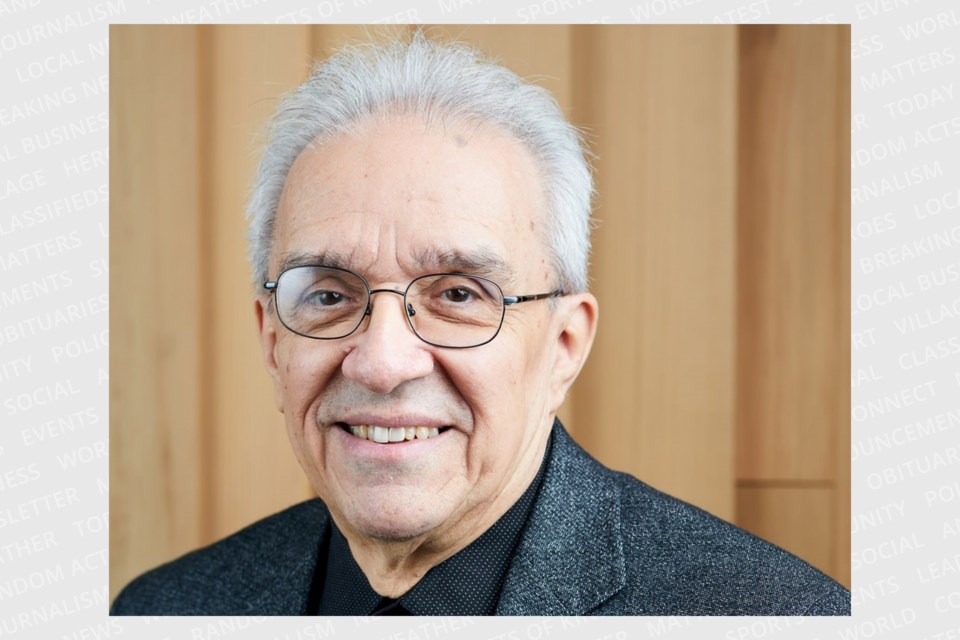Retired justice Harry LaForme is stepping down from his role as lead of the Office of the Mizhinawe for the Robinson Huron Litigation Fund.
LaForme, who has the distinction of being the first appellate court judge in Canadian history with a First Nations background, tendered his resignation in a letter addressed to the litigation team and Robinson Huron First Nation leaders on Sept. 9.
In that resignation letter, the retired judge cited a number of reasons for stepping down from his role as the lead for the engagement and consultation process related to negotiations with Ontario and Canada for what would eventually become a proposed $10-billion settlement over a lack of increases to annual treaty payments since 1875.
One of the reasons cited by LaForme was an “over-the-top reaction” to an interim report that he had submitted to the Robinson Huron Litigation Fund on Aug. 25.
“I am very disappointed to learn that instead of seeing it as an opportunity to course correct at this crucial juncture in the engagement process, some of you were angered by some of its contents,” Laforme wrote in the letter. “For the record, I stand by the contents of the interim report and I am grateful for the stellar work and contributions of the academics who assisted in writing it.”
LaForme said he received a number of text messages and calls from people who attended a recent meeting between the litigation team and First Nations chiefs and councils in Sault Ste. Marie, suggesting that both Laforme and his report were being “unfairly criticized.”
Attendees and community members also provided him with accounts of that meeting which describe “chiefs being shouted down by other chiefs, a chief being publicly castigated by a member of the legal team,” and “a lawyer for a First Nation being thrown out of the room.”
Laforme said “resolutions to end my tenure as the Mizhinawe” were also initiated by members of the legal team and a chief in addition to “various descriptions of behaviour” attributed to the litigation team, “the likes of which I have not heard since I presided as a judge over proceedings involving organized crime.”
Laforme went on to add that there has been no communication from the litigation team since the meeting.
“All of this appalling behaviour is utterly inconsistent with Anishinaabe protocol and tradition, which you consistently say you aspire to emulate,” he said.
Laforme also believes he and people in Robinson Huron First Nations were misled in what the Sept. 9 treaty renewal ceremony in Sault Ste. Marie was to represent, which led to the retired justice being noticeably absent during the Robinson Huron Treaty gathering in Garden River First Nation and Sault Ste. Marie last week.
He said he was “particularly surprised” when a federal negotiator confirmed that Canada would not be in a position to sign the proposed settlement agreement in Sault Ste. Marie Sept. 9.
But Laforme contends that was never made clear to himself or others; instead, he saw an Aug. 14 letter in which chiefs and Robinson Huron Treaty trustees were advised that Canada would not be in a position to sign the agreement, but they were hoping to sign “something” like a document to “reaffirm the commitment” of all parties in signing the settlement agreement.
“That ‘something’ was never made clear to me, despite my attempts to get clarification, and I then decided not to attend the Robinson Huron Treaty Day events,” he said.
LaForme said he would’ve attended the Sept. 9 treaty renewal ceremony in Sault Ste. Marie, and was looking forward to a “major milestone in the process and a step toward reconciliation.”
“I would not participate in anything that I perceived to be less than forthcoming to First Nations and had the hallmarks of a facade,” he said.
According to his resignation letter, the retired justice feels that his relationship with the Robinson Huron Treaty litigation management committee and the legal team is now “broken and its continuation is untenable.”
“I do not see the point in my continuing to participate in the process. It does not seem like a good use of time or money — which does not come out of the settlement proceeds — for me to make recommendations that will be summarily ignored,” he said. “I believe Anishinaabe people deserve much better.”
LaForme has declined to comment publicly on the matter. SooToday has reached out to the Robinson Huron Litigation Fund for comment.
James Hopkin is a reporter for Village Media's SooToday.



